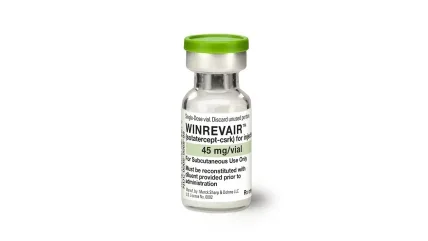
Merck, known as MSD outside of the US and Canada, said that Winrevair (sotatercept-csrk) met the primary endpoint of the Phase 3 ZENITH study in adults with pulmonary arterial hypertension (PAH).
The global, double-blind, placebo-controlled trial enrolled 172 participants. They were randomised in a 1:1 ratio to receive either WINREVAIR plus background PAH therapy or placebo plus background PAH therapy.
The primary endpoint of the trial was the time to first morbidity or mortality event at interim analysis. This was achieved, with Winrevair demonstrating a statistically significant and clinically meaningful reduction in morbidity and mortality risk compared to placebo, in addition to background PAH therapy.
Based on these results, the independent data monitoring committee recommended stopping the trial early. Participants will be offered Winrevair in the SOTERIA open-label extension study.
During the preliminary assessment phase, the occurrence of adverse events and serious adverse events was balanced between the treatment arms.
Merck Research Laboratories chief medical officer and global clinical development head Eliav Barr said: “PAH is a serious, progressive disease with a high incidence of morbidity and mortality.
“Based on the primary endpoint demonstrating overwhelming efficacy, all ZENITH study participants will be offered the opportunity to receive Winrevair.
“These findings are impressive, set a high evidentiary bar for studies of future candidates developed for the treatment of PAH and support the potential of Winrevair to be practice-changing in the management of PAH.”
Winrevair was originally developed by Acceleron Pharma, which was acquired by Merck in September 2021 for $11.5bn. Based on the Phase 3 STELLAR trial results, the drug is approved in the US and 36 countries.
It is approved by the US Food and Drug Administration (FDA) to treat adults with pulmonary arterial hypertension (PAH, WHO Group 1).
In August, it was approved by the European Commission (EC) for PAH in patients with WHO Functional Class (FC) 2 to 3.
In November, the drug was submitted for approval in Japan, supported by the STELLAR trial and an open-label Phase 3 study in Japanese patients.






